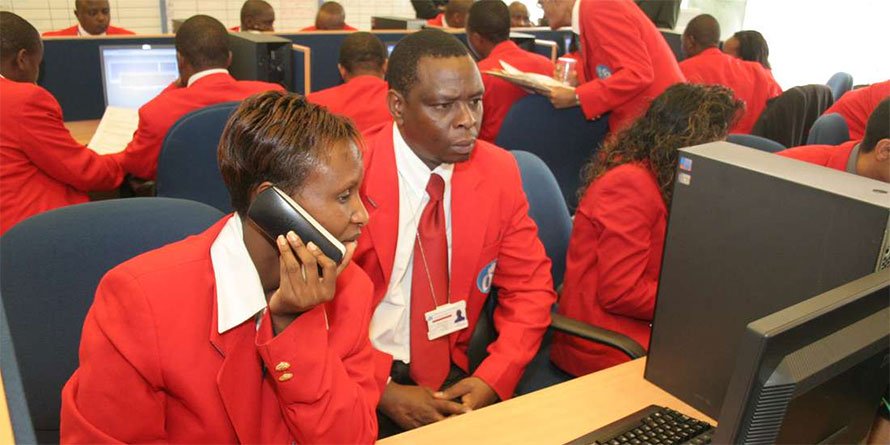Trading at the Nairobi Securities Exchange before the ravages of Covid-19. FILE PHOTO | NMG To buy or not to buy? Is that even the right question? Year-to-date losses for Nairobi Securities Exchange (NSE) 20 remain steep at 27 percent. Pessimists are having the last word. Anyone who talks optimistically about the stock market these days has to put up with an army of doom-and gloom-sayers.
It seems just as greed leads to more greed during a bull market, fear feeds on itself and leads to more fear. Whenever one shouts, “coronavirus crash is a buying opportunity for focussed long termers,” he/she is met with a disapproving silence.
Let’s just say there will come a day when positive prognosticators will be right, and euphoria will once again rule the markets. But that day won’t be tomorrow. And someone (read World Bank) seems to see it the same way; that the day of redemption is a long way down the road.
Its recently released report, Global Economic Prospects, (June 2020) envisions a 5.2 per cent contraction in global GDP in 2020 — the deepest global recession in decades — despite the extraordinary efforts of governments to counter the downturn with fiscal and monetary policy support. That weakness will spill over to the outlook of emerging markets and developing countries, who are forecast to contact by 2.5 per cent as they cope with own domestic outbreaks of the virus.
This would represent the weakest showing by this group of economies in at least 60 years. These downturns are expected to reverse years of progress toward development goals and tip tens of millions of people back into extreme poverty.
Moreover, bank believes that should the pandemic persist, restrictions on movement extended or reintroduced and/ or disruptions to economic activity prolonged, the recession could be deeper.
Under this downside scenario, global growth could shrink by almost eight per cent in 2020. Such a gloomy prognosis, especially if amplified by financial vulnerabilities, could result to a prolonged downturn in the markets.
Essentially, it could trigger a second wave of declines in risk assets. Already the deterioration of economic fundamentals has led to bank loans restructurings in the country, and there’s a risk of a broader impact on the solvency of companies and households.
That said, the realist in me believes that though Covid-19 may linger longer than a few months, the opportunist in me says the crisis is an opportunity now—the market […]
